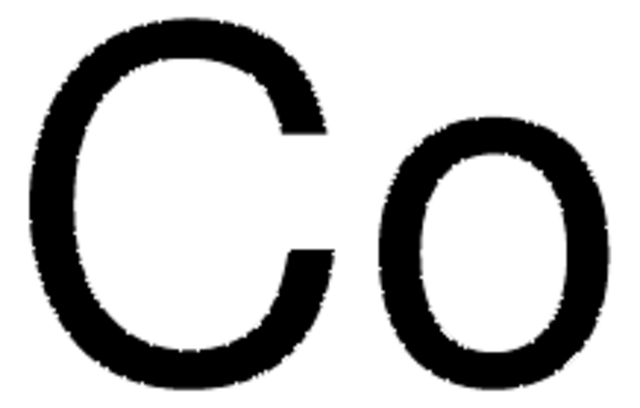548804
Ytterbium
chunks, 99.9% trace metals basis
About This Item
Empfohlene Produkte
Assay
99.9% trace metals basis
Form
chunks
Eignung der Reaktion
reagent type: catalyst
core: ytterbium
Widerstandsfähigkeit
28 μΩ-cm, 20°C
bp
1196 °C (lit.)
mp (Schmelzpunkt)
824 °C (lit.)
Dichte
6.54 g/mL at 25 °C (lit.)
SMILES String
[Yb]
InChI
1S/Yb
InChIKey
NAWDYIZEMPQZHO-UHFFFAOYSA-N
Suchen Sie nach ähnlichen Produkten? Aufrufen Leitfaden zum Produktvergleich
Lagerklassenschlüssel
11 - Combustible Solids
WGK
WGK 3
Flammpunkt (°F)
Not applicable
Flammpunkt (°C)
Not applicable
Persönliche Schutzausrüstung
dust mask type N95 (US), Eyeshields, Gloves
Hier finden Sie alle aktuellen Versionen:
Besitzen Sie dieses Produkt bereits?
In der Dokumentenbibliothek finden Sie die Dokumentation zu den Produkten, die Sie kürzlich erworben haben.
Artikel
A significant limiting factor for wearable electronics and wireless sensors is the finite amount of energy that can be stored in on-board batteries.
The application of magnetism and magnetic materials pervades our modern civilization in the form of electrical power, communications and information storage.
Rechargeable solid-state batteries are becoming increasingly important due to wide-spread use in computers, portable electronics, and vehicular applications.
The unique properties of the rare-earth elements and their alloys have brought them from relative obscurity to high profile use in common hightech applications.
Unser Team von Wissenschaftlern verfügt über Erfahrung in allen Forschungsbereichen einschließlich Life Science, Materialwissenschaften, chemischer Synthese, Chromatographie, Analytik und vielen mehr..
Setzen Sie sich mit dem technischen Dienst in Verbindung.





